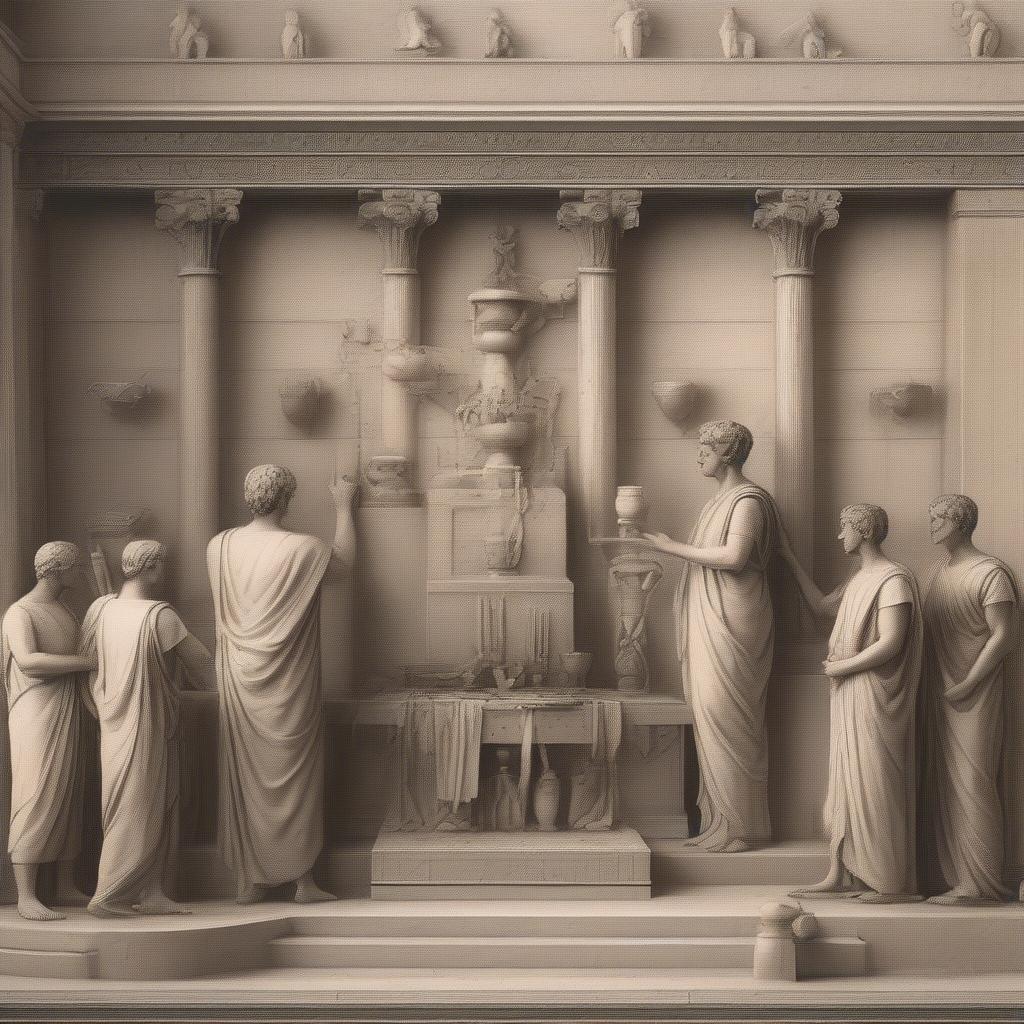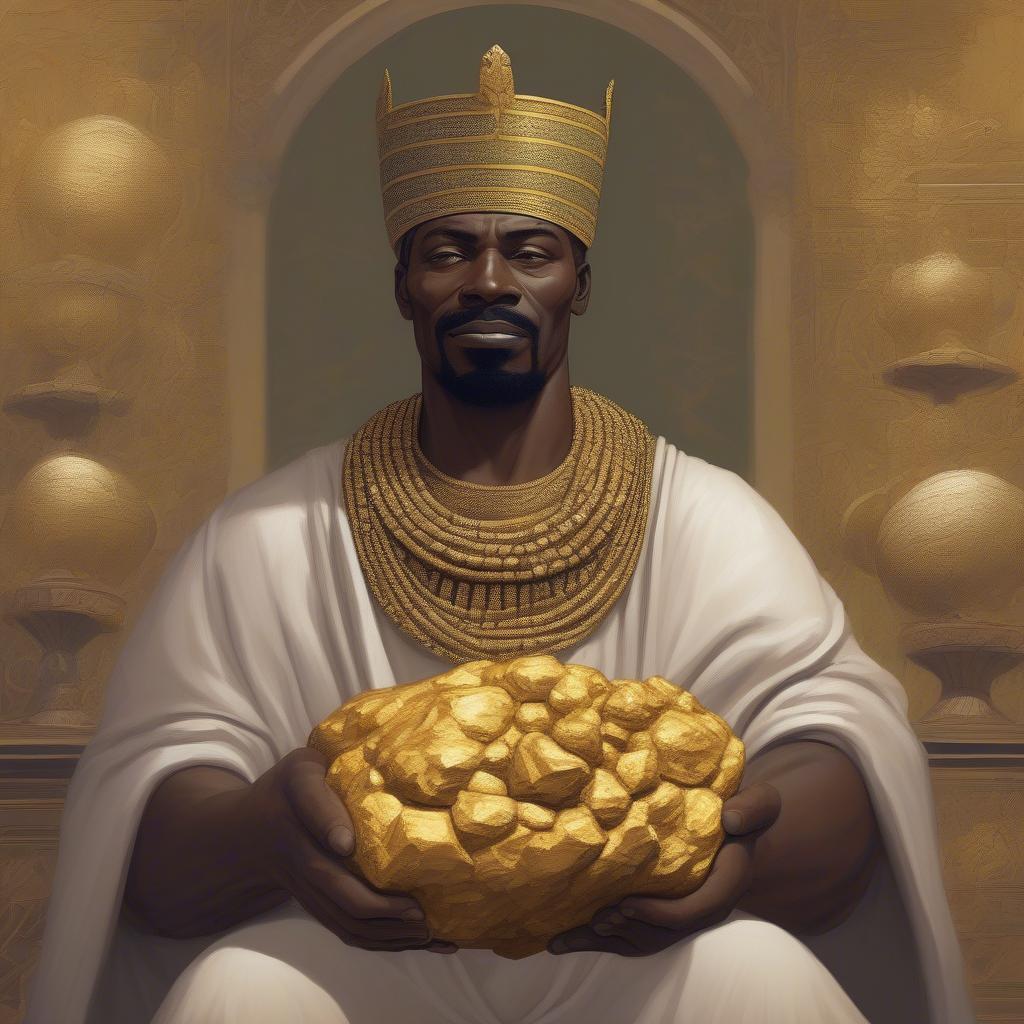
The question of “who is more polytheistic: Greek or Roman?” is complex and doesn’t have a straightforward answer. While both cultures worshipped a pantheon of gods, their approaches to divinity and religious practice differed in subtle yet significant ways. Understanding these nuances is crucial to grasping the true nature of their polytheistic beliefs. At first glance, the Roman and Greek pantheons appear remarkably similar, with gods sharing corresponding roles and domains. However, a closer examination reveals fundamental distinctions in their development, worship, and overall cultural integration.
Table Content:
The Shared Pantheon: A Foundation of Familiarity
The most obvious similarity between Greek and Roman religions lies in their shared pantheon. Zeus and Jupiter, Hera and Juno, Poseidon and Neptune – these pairings represent the direct parallels between the chief deities of each culture. Romans adopted and adapted many Greek myths and gods, often assigning them Roman names and slightly altering their attributes. This cultural exchange resulted in a significant overlap in the stories and figures that populated their respective mythologies. This borrowing can lead to the assumption that their polytheistic practices were identical. However, the way each culture interacted with these deities unveils a deeper complexity.
Roman Pragmatism vs. Greek Anthropomorphism
A key difference lies in the nature of the gods themselves. Greek mythology portrayed gods as deeply flawed, emotional beings with complex personalities and often questionable morals. Their actions, driven by passion and personal vendettas, played out in dramatic narratives that offered explanations for natural phenomena and human behavior. This anthropomorphic depiction of the divine fostered a more personal and intimate relationship between Greeks and their gods.
Roman deities, on the other hand, were often characterized by a more abstract and less personalized nature. Emphasis was placed on their function and role within the cosmic order rather than on their individual personalities. Roman religion was deeply intertwined with the state, and the gods were seen as guardians of Roman law, order, and prosperity. This pragmatic approach to religion focused on ritual and civic duty, prioritizing the maintenance of social stability and the expansion of the Roman Empire.
Beyond the Major Gods: Cults and Local Deities
Beyond the major deities, both cultures embraced a multitude of lesser gods, spirits, and local divinities. The Greeks often celebrated regional cults dedicated to specific gods or heroes, resulting in a more localized and diverse religious landscape. The Romans, while also incorporating local deities, exhibited a greater tendency to integrate them into the larger state pantheon, often associating them with Roman counterparts. This process of syncretism allowed for a more unified religious identity across the vast Roman Empire. “The Roman approach to integrating conquered cultures’ gods into their own pantheon reflects their pragmatic focus on maintaining stability and loyalty within the empire,” says Dr. Amelia Rossi, Professor of Classical Studies at the University of Florence.
The Concept of “Numen”: A Roman Distinctiveness
A crucial element distinguishing Roman polytheism is the concept of “numen.” Numen represented a divine power or spirit that resided in all things, from natural phenomena to individuals and even abstract concepts like justice and victory. This pervasive sense of the sacred infused everyday Roman life with a spiritual dimension that extended beyond the worship of specific gods. While the Greeks also acknowledged divine presence in the natural world, the Roman emphasis on numen suggests a broader and more encompassing understanding of the divine.
Imperial Cult and the Deification of Emperors
Another significant development in Roman religion was the rise of the Imperial Cult. Deceased emperors, starting with Augustus, were often deified and worshipped as divine beings. This practice, while rooted in earlier Roman traditions of ancestor veneration, took on a new significance within the context of the empire. The Imperial Cult served to reinforce the authority of the emperor and foster a sense of unity and loyalty throughout the vast Roman territories. This deification of rulers doesn’t have a direct parallel in Greek polytheism. “The Imperial Cult served not only a religious purpose but also a political one, solidifying the emperor’s authority and linking him directly to the divine,” adds Dr. Marcus Aurelius, Historian of Roman Religion at Oxford University.
 Roman Emperor Worship Ceremony Depiction
Roman Emperor Worship Ceremony Depiction
Conclusion: A Spectrum of Polytheism
Ultimately, labeling one culture as “more” polytheistic than the other is an oversimplification. Both the Greeks and Romans practiced vibrant forms of polytheism, but their approaches differed significantly. While the Greeks emphasized the personalities and narratives of their gods, the Romans focused on their function within the cosmic and social order. The Roman concepts of numen and the Imperial Cult further distinguish their religious practices. Therefore, instead of seeking a definitive answer to “who is more polytheistic,” it’s more accurate to recognize the distinct characteristics and complexities of each culture’s unique expression of polytheistic belief. Both systems offer valuable insights into the diverse ways humans have interacted with the divine throughout history.
FAQ
Did the Romans copy Greek gods? The Romans adopted and adapted many Greek gods and myths, but they also had their own indigenous deities and religious practices.
What is the difference between Zeus and Jupiter? While they share similar roles as kings of the gods, their personalities and narratives differ in some aspects reflecting the distinct cultural values of Greece and Rome.
What is the Roman equivalent of the Greek goddess Aphrodite? The Roman equivalent of Aphrodite is Venus, the goddess of love and beauty.
What is numen in Roman religion? Numen is a divine power or spirit that the Romans believed resided in all things.
Why did the Romans worship their emperors? The Imperial Cult, which involved the deification of deceased emperors, served to reinforce the emperor’s authority and foster unity within the Roman Empire.
Were there any female emperors who were deified? While less common, there were instances of female members of the imperial family being deified, such as Livia, the wife of Augustus.
How did the Greek and Roman pantheons influence later cultures? The Greek and Roman pantheons heavily influenced Western art, literature, and even language, with many names and symbols still in use today.

